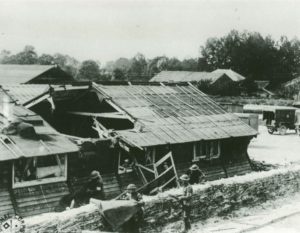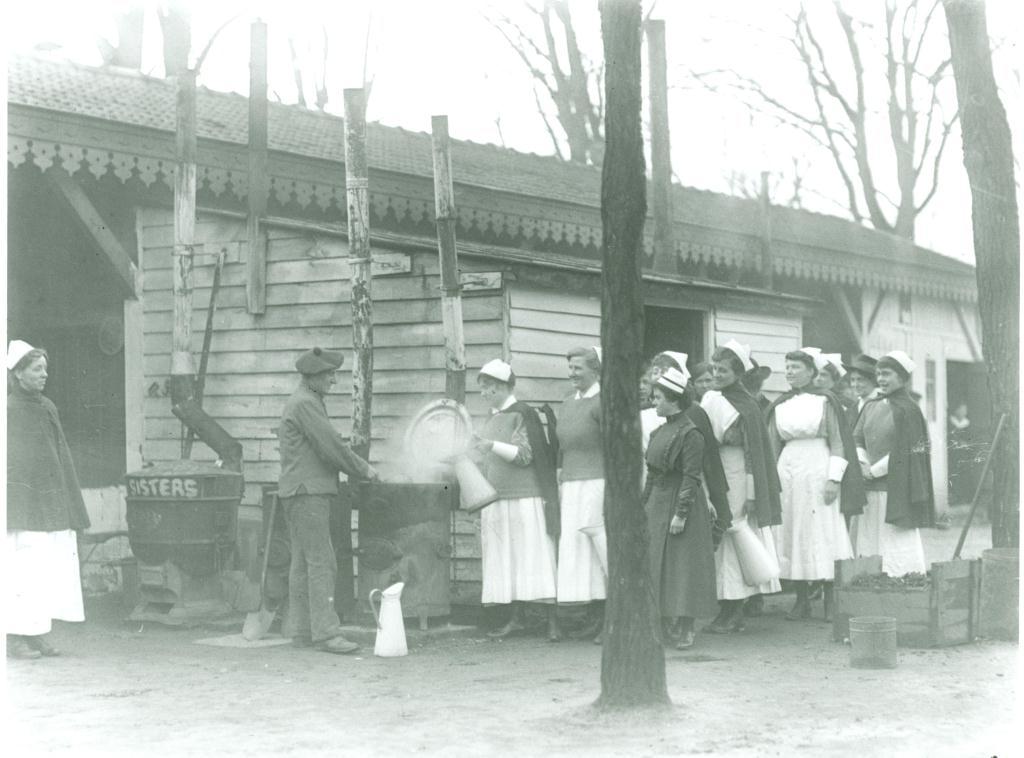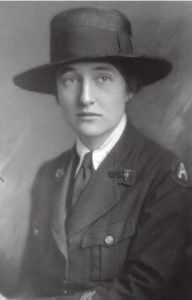By Emily Clark
During the Great War, heroes could be found on the battlefields and in the trenches across Europe, fighting to protect freedom in one of the deadliest conflicts in human history. Not all of the heroes were soldiers, however. Some came armed with antiseptic solutions and wound dressings rather than machine guns and gas masks. These were the brave men and women serving in the U.S. Army Medical Corps and administering to the injured as war raged on around them. One of the most heroic – and youngest – was a 28-year-old nurse from Hartford: Ruth Hovey.
A Commitment to Serve
After graduating from the nursing school at Presbyterian Hospital in New York City in 1914, Hovey, the youngest of three children of a well-to-do family, was working at Hartford Hospital when the United States entered World War I. With courage and a devotion to her country’s cause, she enlisted in May of 1917 to serve in France, finding herself stationed with the British Expeditionary Force in the small village of Étretat. It was there, in March of 1918, that she survived the German offensive and, together with other medical personnel, worked around the clock at their base hospital to care for convoys carrying upwards of 1,000 wounded men.
Hovey’s greatest challenge – and the one that earned her the Croix de Guerre (Cross of War) – came several months later. One night, while based at a French hospital at Bussy-le-Château not far from the front lines, Hovey went to bed with her gas mask and tin hat within reach, only to be awakened by shells flying overhead, signaling the start of the Second Battle of the Marne. As Germans commenced their bombing of the area, doctors and nurses scrambled to find shelter, taking along medical supplies and protective equipment – and their patients.
“Everybody Stuck to Their Posts”
Amid the chaos and destruction, Hovey remained composed, huddled closely with friends and patients. This young nurse relied on the expertise she gained from her months near the Western Front, skillfully treating the injured who flooded the busy operating room throughout the night. Exhausting any supplies that they had with them, Hovey put her own life at risk by removing her protective helmet and using it to pour ether to calm her patients.

Shellfire damage to the ward at Mobile Hospital No.2, Bussy-le-Chateau,
Marne, July 1918 – Army Nurse Corps Association
“We operated all night under shell fire until about 5 A.M. when the shells began to drop into the hospital,” Hovey wrote in a letter to her mother later that month. “A shell whizzed by and took a piece off the room over our heads. Our sleeping quarters and two of the wards and the men’s huts were wrecked. Two patients were killed in bed and others wounded, and through it all mother, everybody stuck to their posts and nobody lost their heads for a moment.”
The following morning, Hovey and her peers relocated to a mobile hospital with the American Expeditionary Force, and for the next three days and nights, they ministered without pause to the injured and dying, “mechanically like machines while the rush lasted,” she said.
“If I had time to think,” Hovey penned, “the sight of our boys shot to pieces and dying on all sides before anything could be done for them, would simple have broken my heart, but we simply had not time to think.”
Honor Bestowed
Though the war was nearing its end when Hovey and others endured this battle in July of 1918, her unit continued to move toward the fighting and she continued to thrive in her care for the sick, even as she herself contracted pneumonia during the Meuse-Argonne offensive later that fall. After returning home to Hartford, in the summer of 1919, Hovey married 1st Lieutenant Benjamin R. Allison, a doctor whom she met on her original transport to Europe two years prior. Soon after, Hovey received notice that she, along with several other nurses, was being recognized for her heroism in France with the honor of the Croix de Guerre and a bronze star.
Hovey’s story of a Connecticut heroine is one mirrored by the thousands of other nurses who served courageously in the U.S. Army between 1917 and 1919, many in American attachments of British and French units. Armed with skill, mettle, and grit known only to a few, they persevered through overwhelming odds, devoted to one of the noblest and selfless causes: saving human lives.
Emily Clark is a freelance writer and an English and Journalism teacher at Amity Regional High School in Woodbridge.










